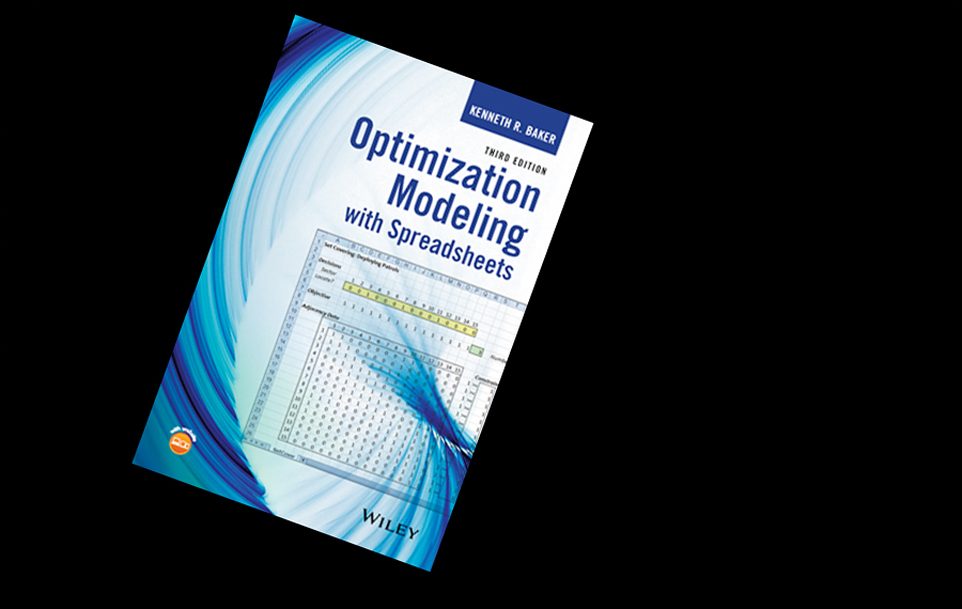
Optimization Modeling with Spreadsheets (Third Edition)

By Kenneth Baker
This is an introductory textbook on optimization—that is, on mathematical programming—intended for undergraduates and graduate students in management or engineering. The principal coverage includes linear programming, nonlinear programming, integer programming and heuristic programming; and the emphasis is on model building using Excel.
The emphasis on model building (rather than algorithms) is one of the features that makes this book distinctive. Most textbooks devote more space to algorithmic details than to formulation principles. These days, however, it is not necessary to know a great deal about algorithms in order to apply optimization tools, especially when relying on the spreadsheet as a solution platform.
The emphasis on spreadsheets is another feature that makes this book distinctive. Few textbooks devoted to optimization pay much attention to spreadsheet implementation of optimization principles, and most books that emphasize model building ignore spreadsheets entirely. Thus, someone looking for a spreadsheet-based treatment would otherwise have to use a textbook that was designed for some other purpose, like a survey of management science topics, rather than one devoted to optimization.
About the Author
Ken Baker //
Kenneth R. Baker, PhD, is the Nathaniel D’1906 & Martha E. Leverone Memorial Professor of Management at the Tuck School of Business and Adjunct Professor of Engineering at Dartmouth College. A Fellow of the Institute for Operations Research and the Management Sciences (INFORMS), Dr. Baker has published extensively in his areas of research interest, which include mathematical modeling, spreadsheet engineering, and scheduling. He is coauthor of Principles of Sequencing and Scheduling and Business Analytics: The Art of Modeling with Spreadsheets, both published by Wiley.
Contact
Author
Ken Baker
Tuck School of Business
Hanover, NH 03755, USA
603-646-2064
Editor
Susanne Steitz-Filler
John Wiley & Sons
111 River St., Hoboken, NJ 07030
201-748-6507